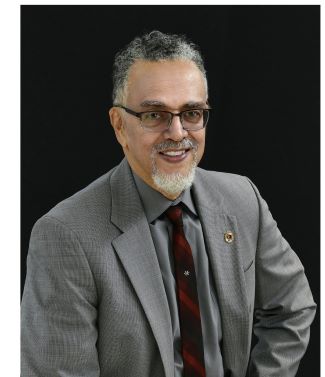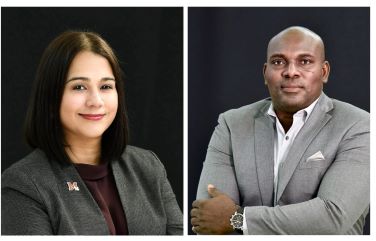
U.S. Department of Education funding will support graduate student stipends
Tuesday, October 6, 2020
The University of Maryland Eastern Shore’s graduate program in rehabilitation counseling is getting an infusion of $1 million from the U.S. Department of Education.
UMES will use the federal funding over the next five years to produce “well-qualified personnel available to provide vocational, medical, social and psychological rehabilitation services to people with disabilities.”
The money will underwrite stipends for roughly 14 graduate students annually, which Dr. William Talley is hopeful will be viewed as an incentive to choose UMES as the place to pursue a master’s degree.
Talley, the department chairman, and faculty colleagues Dr. Bryan Gere and Dr. Leslie Santos, collaborated on writing the grant proposal.
“Without properly trained rehabilitation counselors and mental health professionals,” Santos said, “Maryland and surrounding areas will continue to struggle with a shortage of culturally-competent and well-trained providers to work with people with disabilities.”
“Those in under-served populations and minority groups will continue to lack access to adequate rehabilitation and mental health services,” she said. “We are proud that with this grant, we will be able to contribute to minimizing these disparities.”
Talley, a UMES faculty member for two decades, said the grant from the Rehabilitation Long-Term Training – Vocational Rehabilitation Counseling program ranks among the largest his department has ever received.

Talley noted UMES’ counseling rehabilitation program “is well-prepared to provide competitive training in counseling designed to expose students to the knowledge, skills and abilities needed to become highly competent rehabilitation counselors and counseling professionals.
UMES offers the only nationally accredited graduate program in rehabilitation counseling on the Delmarva Peninsula. Talley, Gere and Santos are now focused on identifying and recruiting qualified recipients for the first stipends by early 2021.
UMES’ grant proposal pledged the university would make a concerted effort to identify people with disabilities, minorities and individuals from traditionally underserved populations. Prospective stipend recipients include women as well as people from linguistically and culturally diverse backgrounds.
The Master of Science in Rehabilitation Counseling degree at UMES is a two-year, 60-credit program that meets the standards of the Council for Accreditation of Counseling and Related Educational Programs and the Council on Rehabilitation Education, which merged in July 2017.
Gere, a UMES alumnus who returned to his alma mater two years ago to teach, said the good news about the grant comes at an opportune time.
“With the pandemic, people are finding it hard to come to school,” Gere said. “We’ll be better able to provide funding and support, especially for people who might be thinking about making a career change.”
Graduates of rehabilitation counseling programs assist people with disabilities to achieve their personal, career and independent living goals. Public and private vocational rehabilitation agencies, substance abuse settings, Social Security Administration, prisons, schools and insurance companies employ rehabilitation counselors.
Students who graduate from UMES’ program meet the educational requirements of the Board of Professional Counselors and Therapists in Maryland and surrounding areas. “This … allows them to apply to become a Certified Rehabilitation Counselors, Licensed Clinical Professional Counselors and Licensed Clinical Alcohol & Drugs Counselors.”
For Gere, a junior faculty member, writing a successful grant application is an important accomplishment.
“I was ecstatic,” he said when the university received confirmation. “We’re trying to recruit more students and retain existing students. This should be of great help.”

